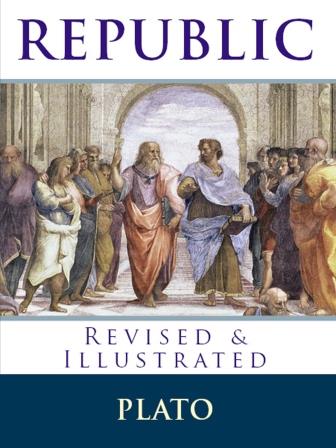The state
Papirus Oxyrhynchus, with fragment of Plato's Republic
Plato's philosophical views had many societal implications, especially on the idea of an ideal state or government. There is some discrepancy between his early and later views. Some of the most famous doctrines are contained in the Republic during his middle period, as well as in the Laws and the Statesman. However, because Plato wrote dialogues, it is assumed that Socrates is often speaking for Plato. This assumption may not be true in all cases.
Plato, through the words of Socrates, asserts that societies have a tripartite class structure corresponding to the appetite/spirit/reason structure of the individual soul.
The appetite/spirit/reason stand for different parts of the body. The body parts symbolize the castes of society.
-
Productive, which represents the abdomen. (Workers) — the labourers, carpenters, plumbers, masons, merchants, farmers, ranchers, etc. These correspond to the "appetite" part of the soul.
-
Protective, which represents the chest. (Warriors or Guardians) — those who are adventurous, strong and brave; in the armed forces. These correspond to the "spirit" part of the soul.
-
Governing, which represents the head. (Rulers or Philosopher Kings) — those who are intelligent, rational, self-controlled, in love with wisdom, well suited to make decisions for the community. These correspond to the "reason" part of the soul and are very few.
According to this model, the principles of Athenian democracy (as it existed in his day) are rejected as only a few are fit to rule. Instead of rhetoric and persuasion, Plato says reason and wisdom should govern. As Plato puts it:
"Until philosophers rule as kings or those who are now called kings and leading men genuinely and adequately philosophise, that is, until political power and philosophy entirely coincide, while the many natures who at present pursue either one exclusively are forcibly prevented from doing so, cities will have no rest from evils,… nor, I think, will the human race." (Republic 473c-d)
Plato describes these "philosopher kings" as "those who love the sight of truth" (Republic 475c) and supports the idea with the analogy of a captain and his ship or a doctor and his medicine. According to him, sailing and health are not things that everyone is qualified to practice by nature. A large part of the Republic then addresses how the educational system should be set up to produce these philosopher kings.

































